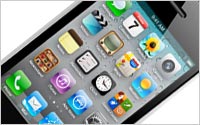iPhone User Files New App-Privacy Complaint
- by Wendy Davis @wendyndavis, January 31, 2013

Late last year, a federal judge dismissed New Jersey resident Maria Pirozzi's potential class-action privacy lawsuit against Apple. Now Pirozzi is trying again with a new complaint that offers more details about her allegations that Apple violated her privacy by allowing app developers to upload her address book and photos.
Pirozzi says in her latest court papers that she has owned an iPhone since September 2011 and has downloaded numerous apps, including Angry Birds and Facebook.
She says she "relied on Apple's reputation for safety" when she purchased the device. "Had plaintiff known that Apple designed the iPhone in such a way as to make these devices vulnerable to unauthorized access from third-party apps, plaintiff would not have downloaded apps and would have consequently paid less for her iPhone," she alleges in the new papers, filed in federal court in the Northern District of California.
Pirozzi initially sued Apple last March, several weeks after developers first reported that the apps Hipster and Path surreptitiously uploaded users' address books. Soon after that report, other app developers were accused of retaining too much information. Those app developers, including Twitter, allegedly asked users for permission to upload their address books. (More than a dozen app developers are facing separate lawsuits for allegedly violating users' privacy by uploading and retaining their data.)
In December, U.S. District Court Judge Yvonne Gonzalez Rogers granted Apple's request to dismiss the lawsuit, but ruled at the time that Pirozzi could add more allegations and try again. Rogers said that Pirozzi would have to show what type of device she purchased, which specific Apple statements she read before buying a device, which apps accessed her information and how she was harmed by any tracking.
It's not clear whether Rogers will allow Pirozzi to proceed with the new complaint. While Pirozzi alleges that she downloaded Facebook and Angry Birds, she doesn't appear to allege that those apps accessed any of her information. Instead, she says that the apps "may have" downloaded users’ data without their explicit consent.


